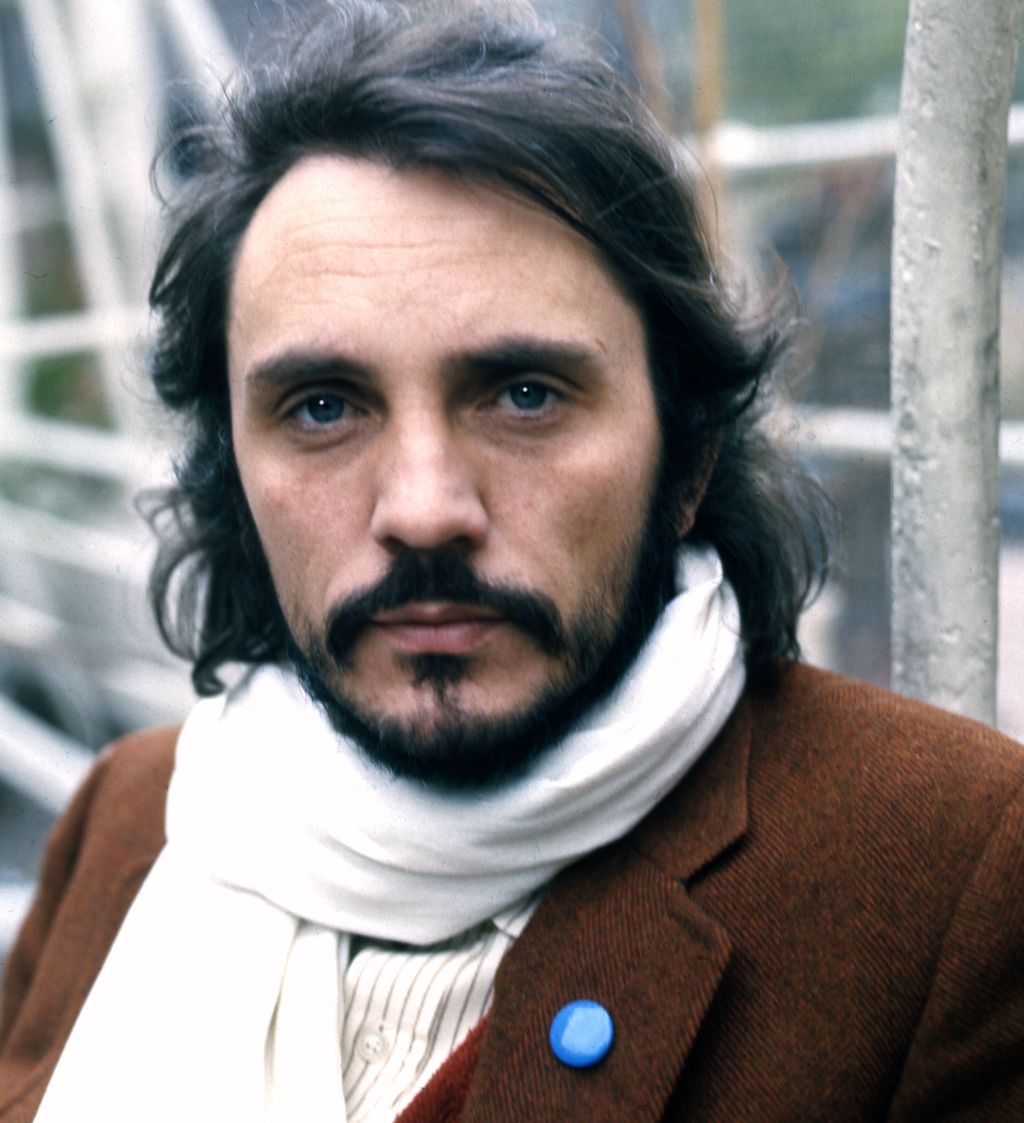
Warren Edward Buffett, often heralded as the “Oracle of Omaha,” stands as a titan in the world of investment and philanthropy. His name is synonymous with profound financial acumen, long-term vision, and a unique approach to wealth accumulation that has captivated generations of investors and business enthusiasts. With an estimated net worth of US$160.2 billion as of May 2025, making him the fifth-richest individual globally, Buffett’s journey from a young entrepreneur with a keen interest in business to the chairman and CEO of Berkshire Hathaway is a testament to his enduring principles.
His path to unparalleled success wasn’t paved with complex financial wizardry or short-term speculation, but rather with a foundation built on clear, consistent habits and an unwavering philosophy. Buffett’s life offers a rich tapestry of practical insights, demonstrating how certain steadfast approaches, cultivated over decades, can lead to extraordinary outcomes.
This article delves into some of the most influential habits and core principles that have shaped Warren Buffett’s illustrious career and personal life. We will explore the foundations of his success, examining how his choices in areas such as personal finance, continuous learning, and philanthropic endeavors have not only defined him as a legendary investor but also as a remarkable individual whose wisdom extends far beyond the stock market.

1. **The Frugality of a Billionaire: Living Modestly Despite Immense Wealth**Warren Buffett’s personal life starkly contrasts with his colossal wealth, a testament to his renowned frugality. Despite being one of the richest people in the world, he is “noted for his adherence to the principles of value investing, and his frugality despite his wealth.” This commitment to modest living is a deeply ingrained habit that underscores his entire financial philosophy, exemplifying a focus on intrinsic value over ostentatious display.
A striking example is his home. In 1958, Buffett purchased a five-bedroom stucco house in Omaha for US$31,500 (equivalent to $352,658 in 2024), where he famously “still lives.” Remaining in this relatively modest home for over six decades highlights his priorities and a detachment from material possessions, allowing him to channel resources into more impactful endeavors.
Even his historical approach to technology reflected this. In December 2006, it was reported that Buffett “did not carry a mobile phone, did not have a computer at his desk, and drove his own automobile,” a Cadillac DTS. This historical aversion to cutting-edge personal tech reinforces his tendency to avoid unnecessary expenses and distractions, preferring tried-and-true methods.
His frugality extends to his executive compensation. His 2006 annual salary was “about $100,000,” considered small compared to peers, and in 2008, his total compensation was “just $100,000.” This remarkably low salary sends a powerful message about prioritizing the company’s long-term health and shareholder value over personal enrichment. This habit of frugality, far from being a sacrifice, prevents unnecessary capital outflows, demonstrating that true wealth is managed effectively, not lavishly spent.
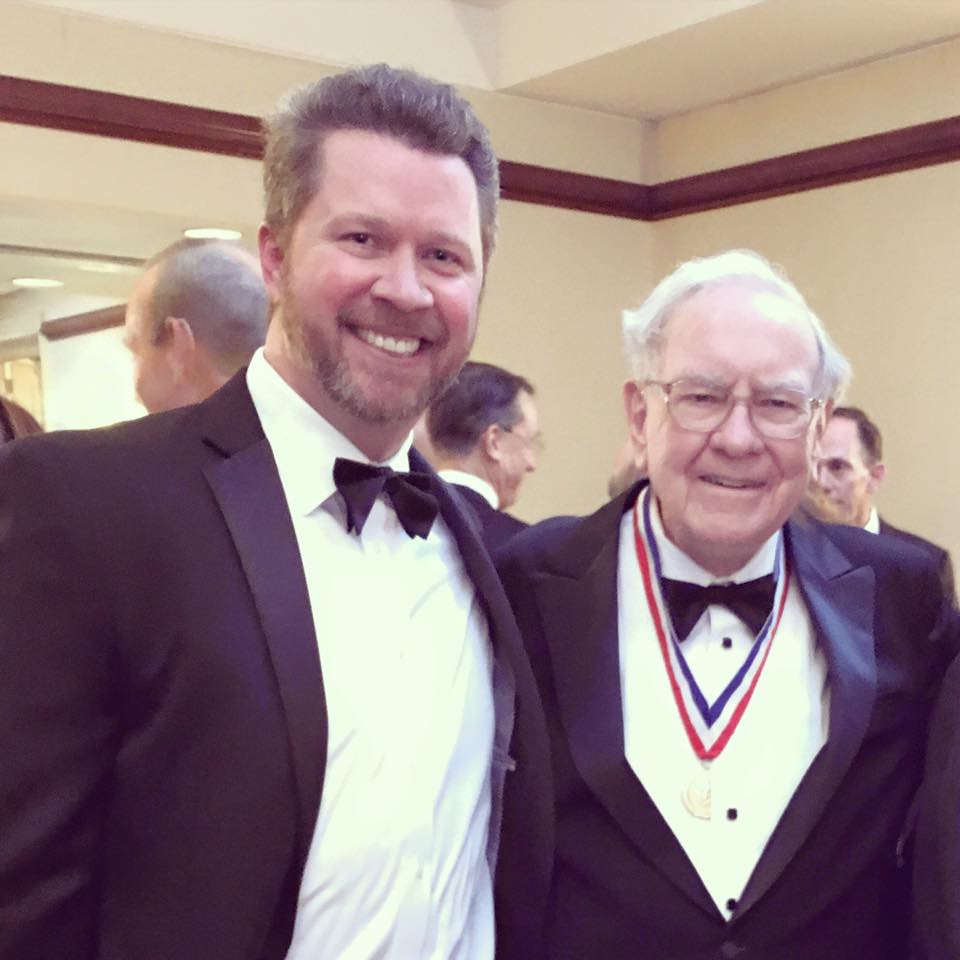
2. **The Power of Lifelong Learning: A Relentless Pursuit of Knowledge**Warren Buffett’s extraordinary success is inextricably linked to his insatiable curiosity and commitment to lifelong learning. His intellectual development began remarkably early, sparked by a book he borrowed at age seven, “One Thousand Ways to Make $1000.” This early inspiration set the stage for a lifetime dedicated to absorbing knowledge, understanding complex systems, and continually refining his insights, illustrating that continuous learning is a fundamental strategy.
His formal education reflects this dedication. After attending Wharton and graduating from the University of Nebraska, Buffett specifically “enrolled at Columbia Business School… upon learning that Benjamin Graham taught there.” This strategic choice highlights his priority: learning from the best. He earned a Master of Science in economics from Columbia in 1951, further cementing his academic foundation.
Beyond formal institutions, Buffett maintains a rigorous daily regimen of reading. He “reads five newspapers every day, beginning with the Omaha World Herald.” This commitment keeps him abreast of current events, economic trends, and societal shifts, all informing his investment decisions. This daily habit of broad reading is an active engagement with the world, allowing him to connect disparate pieces of information.
His intellectual journey also reveals a capacity for growth and adaptation. For many years, Buffett had stated he “would not invest in technology because he did not fully understand it.” However, in November 2011, he invested around $11 billion in International Business Machine Corp (IBM) stock, impressed by its client retention. This pivot demonstrates a willingness to learn about new sectors and update his understanding, showcasing that lifelong learning is about evolving knowledge.
Read more about: Stranger Things’ Dacre Montgomery: Unpacking His Hollywood Hiatus and Authentic Return to the Spotlight
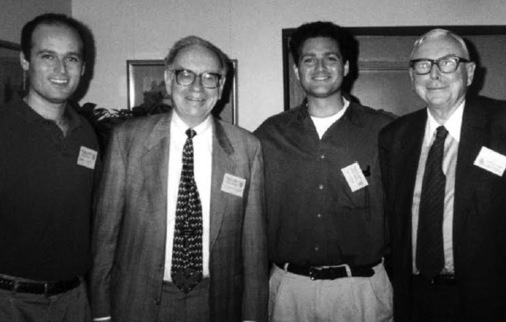
3. **The Oracle’s Investment Philosophy: Value Investing**At the heart of Warren Buffett’s extraordinary investment success lies his steadfast adherence to value investing, a philosophy he “molded his investment philosophy around… pioneered by Benjamin Graham.” This foundational approach views stocks not as speculative instruments, but as ownership stakes in actual businesses. Buffett’s famous quote encapsulates this: “The basic ideas of investing are to look at stocks as business, use the market’s fluctuations to your advantage, and seek a margin of safety. That’s what Ben Graham taught us.”
Graham’s influence was profound. After being rejected by Harvard Business School, Buffett chose Columbia Business School to learn directly from Graham. He later worked as a securities analyst at Graham-Newman Corp., where “Graham was adamant that stock picks should provide a wide margin of safety after weighing the trade-off between their price and their intrinsic value.” This concept became a non-negotiable tenet for Buffett.
Buffett’s early partnerships directly applied value investing. In 1961, he invested in Sanborn Map Company, observing its stock sold for $45 per share while its investment portfolio was worth $65 per share. This clear undervaluation presented an undeniable margin of safety. He became an activist investor, ultimately reaping a “50 percent return on investment in just two years” when the company repurchased shares.
His skepticism of the efficient-market hypothesis further highlights his belief in value investing. In “The Superinvestors of Graham-and-Doddsville,” Buffett “rebutted the academic efficient-market hypothesis” by showcasing the consistent outperformance of Graham and Dodd’s students. This firmly establishes his conviction that diligent research and a value-oriented approach yield superior returns, demonstrating market fluctuations can be exploited.
The success of Berkshire Hathaway under Buffett is a living testament. His acquisition of The Coca-Cola Company in 1988, for $1.02 billion, which “would turn out to be one of Berkshire’s most lucrative investments and one which it still holds,” showcases the long-term power of this philosophy. By identifying strong businesses at reasonable prices and holding them, Buffett proves patience and intrinsic value assessment surpass fleeting market trends.
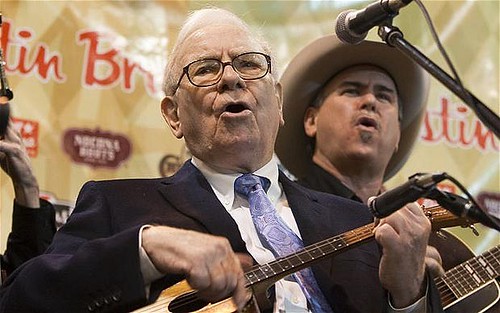
4. **The Entrepreneurial Spirit from Youth: Early Ventures Shaping Business Acumen**Warren Buffett’s success was not sudden; it was the culmination of a lifelong entrepreneurial drive that began in his earliest years. His childhood was “enlivened with entrepreneurial ventures,” laying a crucial foundation for his business acumen. These early experiences provided invaluable lessons in sales, operations, and capital allocation, long before Wall Street.
From selling “chewing gum, Coca-Cola, and weekly magazines door to door” to working “in his grandfather’s grocery store,” Buffett showed an innate understanding of commerce. In high school, he diversified income by “delivering newspapers, selling golf balls and stamps, and detailing cars.” These highlight a relentless pursuit of opportunity and diligence, habits defining his professional life.
A key early venture involved pinball machines. In 1945, “as a high school sophomore, Buffett and a friend spent $25 to purchase a used pinball machine.” “Within months, they owned several machines in three different barber shops across Omaha,” showcasing his ability to identify a profitable niche and expand. They eventually sold the business “to a war veteran for $1,200,” a significant return and early lesson in valuation.
These hands-on experiences taught Buffett crucial lessons: how businesses operate, the importance of cash flow, and reinvestment. By the time he finished college, “Buffett had amassed $9,800 in savings (about $130,000 today),” a testament to his disciplined savings and entrepreneurial success. This substantial capital allowed him to later launch his investment partnerships with a solid financial base.
Read more about: Quincy Jones, the Master Orchestrator Whose Boundless Influence Reshaped Global Music and Entertainment, Dies at 91
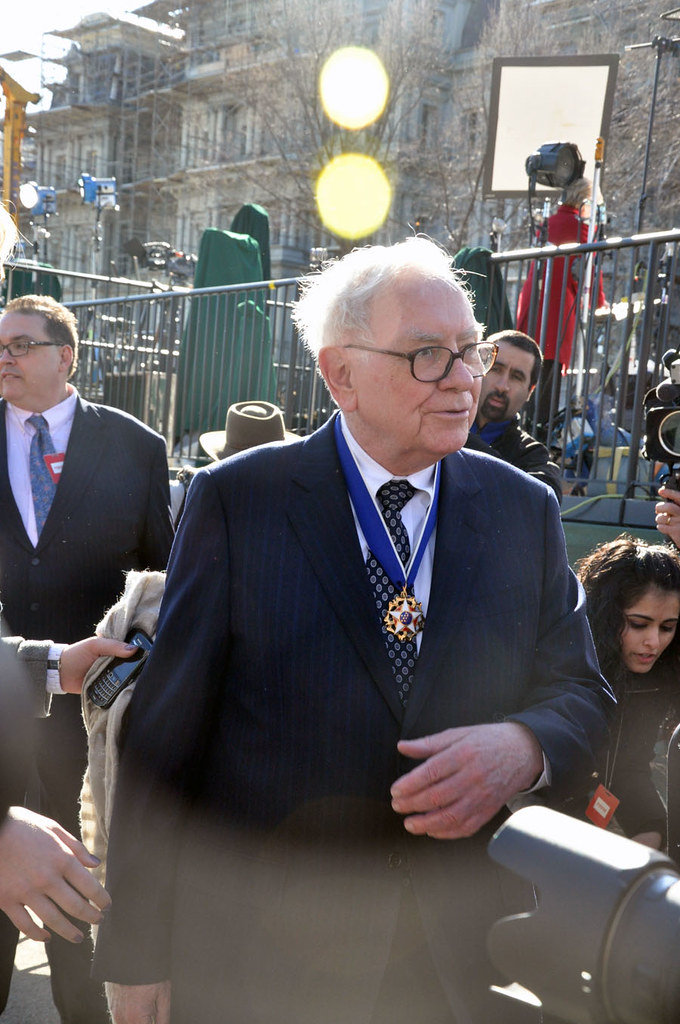
5. **A Dedication to Philanthropy: Pledging 99% of His Fortune**One of the most remarkable aspects of Warren Buffett’s legacy is his profound commitment to philanthropy, a habit of giving elevated to an unprecedented scale. He has “pledged to give away 99 percent of his fortune to philanthropic causes,” primarily through the Bill & Melinda Gates Foundation. This monumental commitment transforms his wealth into a powerful instrument for global good, setting a new paradigm for charitable giving.
This pledge materialized in June 2006, when Buffett announced plans to “gradually give away 85% of his Berkshire holdings to five foundations,” with the largest contribution to the Gates Foundation. This initial pledge, “approximately $30.7 billion,” was “the largest charitable donation in history” and positioned him as “one of the leaders of philanthrocapitalism.”
Further solidifying his resolve, Buffett “founded the Giving Pledge in 2010 with Bill Gates, whereby billionaires pledge to give away at least half of their fortunes.” This initiative transformed his personal commitment into a collective movement, inspiring others to dedicate significant wealth to charitable causes.
His philanthropic philosophy also reflects in his views on inheritance: “I want to give my kids just enough so that they would feel that they could do anything, but not so much that they would feel like doing nothing.” This insightful perspective guides his decision that “His children will not inherit a significant proportion of his wealth,” ensuring empowerment without disincentive. The systematic nature of his giving ensures sustained impact and demonstrates a long-term vision, mirroring his investment strategy.
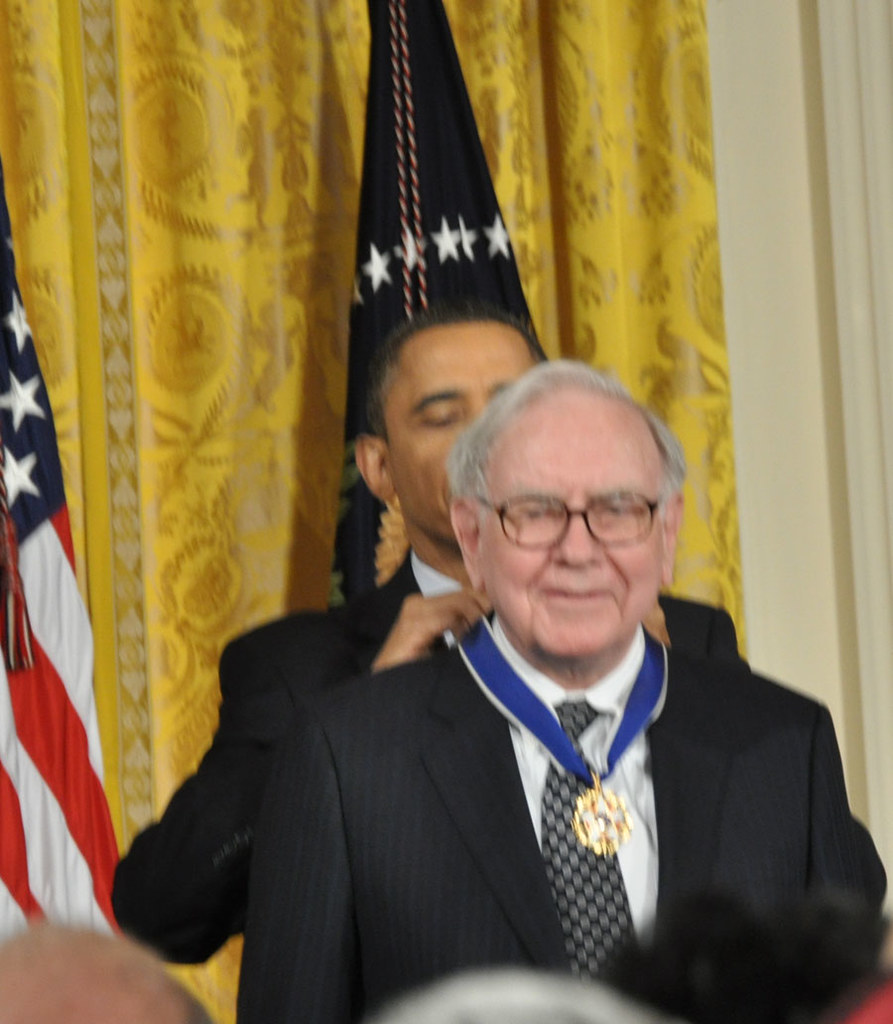
6. **The Wisdom of Independent Thought: Skepticism Towards Wall Street and Investment Banks**Warren Buffett consistently champions an investment philosophy rooted in independent thought, often expressing skepticism towards conventional Wall Street practices, particularly regarding investment banks and active management. This habit of critical, self-reliant analysis has been a hallmark of his career, enabling him to cut through market noise and make decisions based on fundamental value. His aversion to relying on external financial intermediaries underscores his belief in self-directed, informed decision-making.
A clear manifestation is his “long-standing aversion to using the services of investment banks via Berkshire Hathaway.” While these institutions are often seen as indispensable, Buffett’s preference for direct dealings often bypasses expensive intermediaries. This strategic avoidance saves considerable fees and aligns with his frugal nature, ensuring capital is deployed directly into value-creating ventures.
Buffett’s skepticism extends to active fund management. He is a staunch “supporter of index funds for people who are either not interested in managing their own money or do not have the time.” He believes “active management can rarely outperform the market in the long run,” advising investors “to move their money to low-cost index funds that track broad, diversified stock market indices.” This challenges the business model of many Wall Street firms, prioritizing what’s best for the average investor.
His famous bet, initiated in 2007, illustrates this conviction. Buffett wagered “with numerous managers that a simple S&P 500 index fund will outperform hedge funds that charge exorbitant fees.” By 2017, “the index fund was outperforming every hedge fund that made the bet against Buffett,” a data-driven demonstration validating his argument against the high costs and often underperforming results of active management.
Buffett’s independent thinking allows him to “use the market’s fluctuations to your advantage,” as he learned from Benjamin Graham. While others panic or follow fads, Buffett remains steadfast, focusing on the underlying business. This habit of looking beyond immediate market sentiment, to intrinsic value and long-term prospects, has been crucial to his success, teaching that true investment wisdom often comes from resisting the herd.
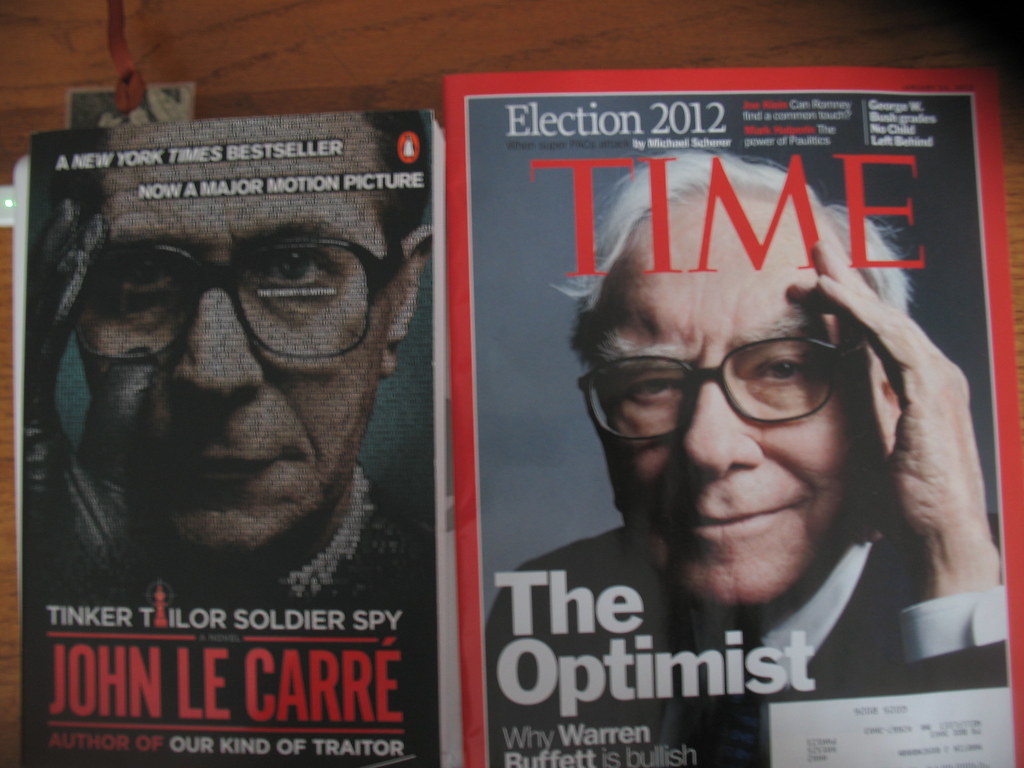
7. **Recreational Pursuits: The Mental Acuity of Bridge and Lifelong Passions**Beyond the boardrooms and balance sheets, Warren Buffett cultivates a rich inner life through a selection of recreational pursuits that speak volumes about his character and approach to mental sharpness. Foremost among these is his ardent passion for bridge, a game he reportedly plays for 12 hours a week. This strategic card game, which he enjoys with luminaries like Bill Gates and champion player Sharon Osberg, is far more than a pastime; it’s a rigorous mental workout that hones decision-making, probability assessment, and strategic planning, mirroring the very skills essential to his investment success. He once quipped, “Bridge is such a sensational game that I wouldn’t mind being in jail if I had three cellmates who were decent players and who were willing to keep the game going twenty-four hours a day.”
Buffett’s array of personal interests extends to a dedicated, lifelong following of Nebraska football, attending as many games as his schedule permits. This unwavering loyalty to his home state’s team demonstrates a groundedness and connection to his roots, contrasting with the often-itinerant lives of other billionaires. Another distinctive hobby is his ukulele playing, an instrument he picked up in 1949 and often performs at shareholder meetings. This seemingly whimsical pursuit, which even led to commissioning custom Dairy Queen ukuleles, underscores his approachable demeanor and ability to inject humor into his public persona.
These seemingly simple habits are integral to Buffett’s overall well-being and intellectual vitality. They provide a crucial balance to the intense demands of his professional life, offering avenues for relaxation, social engagement, and continuous mental exercise. His commitment to these personal passions illustrates that success isn’t solely about work; it’s also about nurturing the mind and spirit, fostering the clarity and perspective needed to navigate complex financial landscapes. These recreational pursuits are not mere distractions, but rather reinforcing elements of his disciplined yet vibrant life.
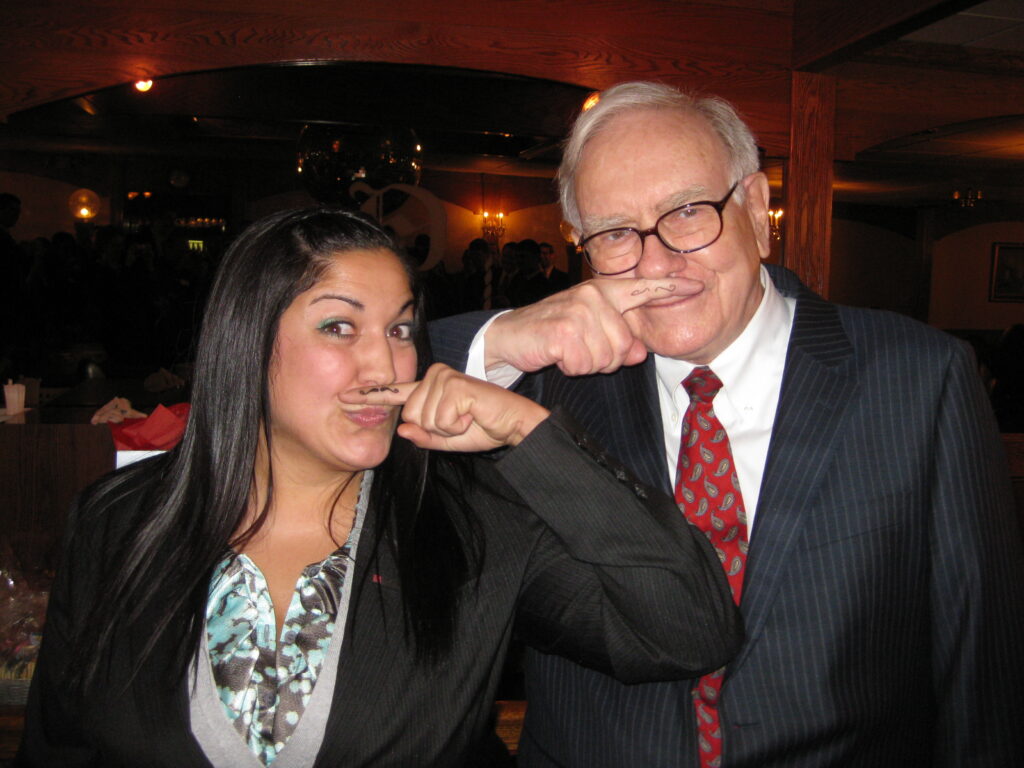
8. **The Art of Communication: Blending Business Acumen with Folksy Humor**Warren Buffett is not just an investment genius; he is a master communicator, renowned for his ability to translate complex financial concepts into accessible, engaging narratives. His annual shareholder meetings, affectionately dubbed the “Woodstock of Capitalism,” draw tens of thousands, eager to absorb his wisdom, often delivered with a generous helping of humor. These gatherings, along with his annual reports and letters to shareholders, are highly anticipated events in the financial world, demonstrating the power of a clear, authentic voice.
His communication style is distinctively folksy and Midwestern, characterized by wit, parables, and a knack for memorable quotes. This approach effectively cuts through the jargon and high-flown language often prevalent in finance, making his insights relatable to a broad audience, from seasoned investors to everyday individuals. He seamlessly blends serious business discussions with lighthearted anecdotes, a habit that disarms listeners and builds a profound sense of trust and connection. His writings, for instance, are known for containing quotations from sources as varied as the Bible and Mae West, alongside practical advice.
This habit of clear, engaging communication is a cornerstone of his leadership and influence. It allows him to convey his investment philosophy with conviction, manage shareholder expectations, and inspire confidence, even during challenging economic times. By being direct, transparent, and entertaining, Buffett has cultivated a unique relationship with his investors and the public, proving that true credibility is built not just on results, but on honest and compelling storytelling. His ability to articulate his vision and principles has solidified his status as a beloved and respected figure far beyond the investment community.
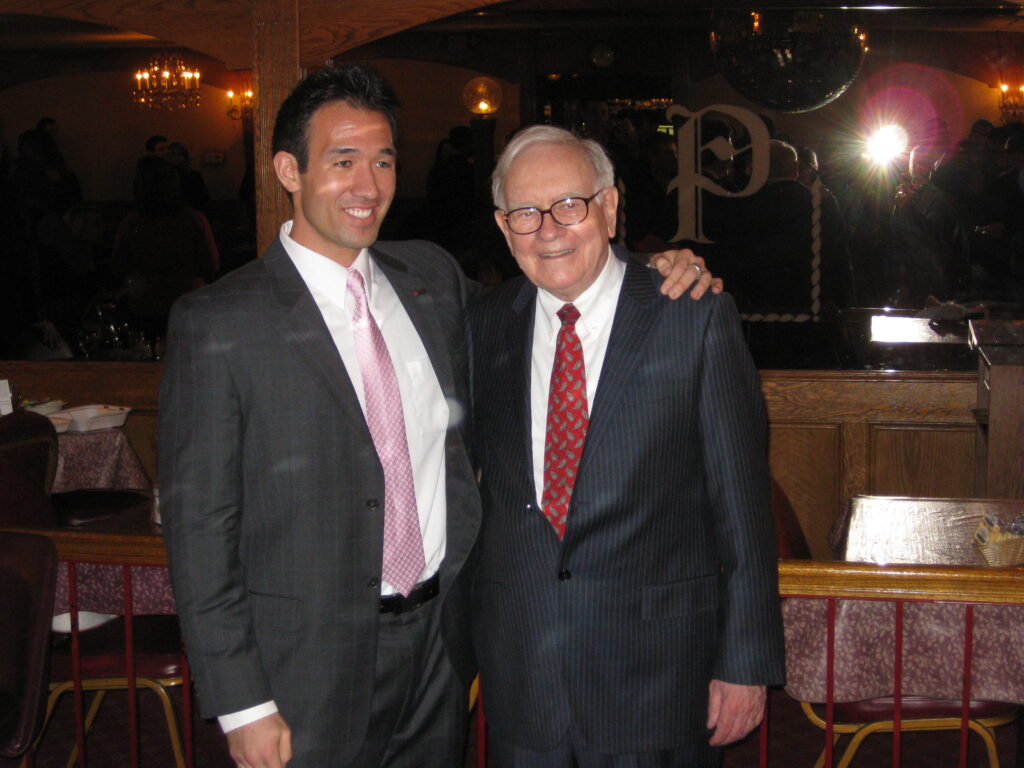
9. **Building Enduring Relationships: The Pillars of Buffett’s Success**Warren Buffett’s extraordinary career and personal fulfillment have been deeply anchored by a network of enduring relationships, both professional and personal, that have provided intellectual rigor, loyal partnership, and unwavering support. At the apex of his professional connections stands Charlie Munger, his long-time business associate and vice-chairman of Berkshire Hathaway. Their partnership, forged in 1959, has been a synergy of sharp minds, with Munger often serving as the crucial counterpoint to Buffett’s ideas, leading to robust and well-considered strategies.
Beyond Munger, Buffett’s life is dotted with other profoundly influential figures. Benjamin Graham, his mentor at Columbia Business School, was instrumental in shaping his value investing philosophy, emphasizing a “margin of safety.” Lorimer Davidson, GEICO’s vice president, became a lifelong friend and an early influence after their initial, chance meeting. Later, in business, his close friendship with Katharine Graham, who controlled The Washington Post Company, offered invaluable insights and a strong alliance during a crucial investment period, highlighting the strategic importance of trust in business dealings.
His personal life also reflects a commitment to deep relationships, most notably with his late first wife, Susan Thompson Buffett, and his long-time companion, Astrid Menks, whom he married in 2006. Notably, Susan had arranged for Warren and Astrid to meet, and Christmas cards to friends were famously signed “Warren, Susie and Astrid,” illustrating an unconventional but strong familial bond. His close friendship with Bill Gates, with whom he co-founded the Giving Pledge, transformed his personal philanthropic commitment into a global movement, demonstrating the power of collaborative vision in addressing societal challenges.
These relationships, whether personal or professional, underscore a fundamental habit of building and nurturing trust-based connections. They provided sounding boards for his ideas, diversified his perspectives, and offered moral and emotional support throughout his journey. Buffett’s success is not a solitary achievement; it is a testament to the power of surrounding oneself with intelligent, trustworthy individuals who contribute significantly to both personal well-being and professional triumph, forming a human capital advantage that few can match.
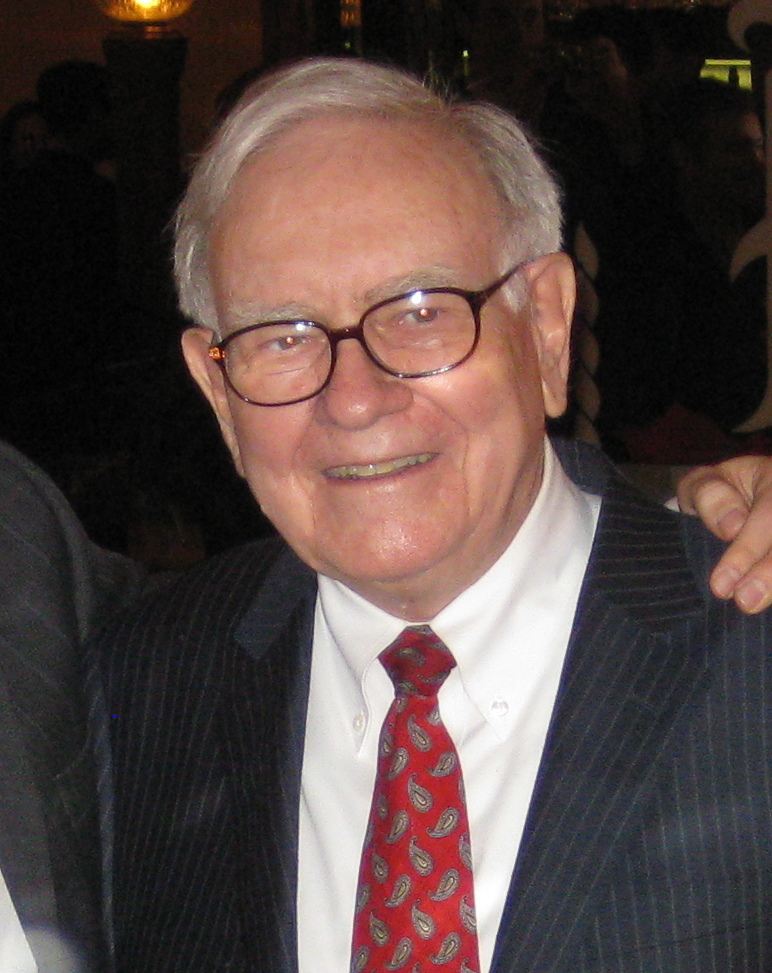
10. **An Evolving Investment Landscape: Adapting to New Industries**While Warren Buffett is celebrated for his steadfast principles, a lesser-known but equally critical habit has been his willingness to evolve and adapt his investment focus across a changing economic landscape. Initially, he gained control of Berkshire Hathaway, a textile manufacturing firm, which he later admitted was his “worst trade.” This early experience taught him the importance of moving capital from declining industries to those with stronger futures, prompting a strategic pivot into the insurance sector, which became the bedrock of Berkshire’s diversification and growth.
Perhaps the most striking example of his evolving investment strategy was his long-standing public stance against investing in technology, a sector he famously declared he “did not fully understand.” However, demonstrating a capacity for growth and adaptation, Buffett surprised many in November 2011 by investing approximately $11 billion in International Business Machine Corp (IBM) stock. He was impressed by IBM’s client retention and its clear strategic direction, showcasing his readiness to learn and update his understanding when fundamental business value presented itself, rather than clinging to outdated biases.
His investment horizon also broadened significantly to include diverse industries beyond finance. He acquired a substantial stake in The Washington Post Company in the 1970s, establishing a foothold in media. More recently, he made significant commitments to infrastructure and essential services, such as the acquisition of Burlington Northern Santa Fe Corp. for $34 billion in 2009. His later purchase of Media General, acquiring 63 newspapers across the southeastern U.S., further cemented his belief in the enduring value of local media, even amidst digital disruption, provided the underlying business fundamentals are sound. This continuous, thoughtful diversification and willingness to enter new sectors, while maintaining his core value investing principles, highlights his dynamic approach to wealth creation.
His ability to divest from underperforming assets, such as his failed investment in ConocoPhillips in 2009, further illustrates this adaptability. He candidly admitted, “But so far I have been dead wrong,” regarding the timing of the energy investment. This habit of honest self-assessment and strategic re-allocation, regardless of past commitments, is crucial to sustaining long-term investment success, demonstrating that even the Oracle of Omaha is continually learning and adjusting his sails to the prevailing economic winds.
Read more about: California’s Evolving Landscape: A Deep Dive into the State’s Economic Drivers, Environmental Stewardship, and Capacity for Progressive Local Governance
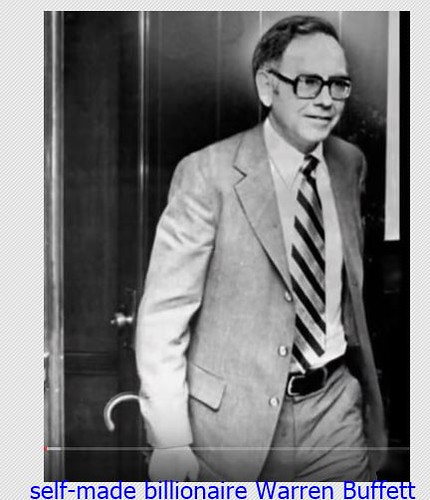
11. **Technology and the Oracle: A Pragmatic Approach to Innovation**Warren Buffett’s relationship with technology has been famously cautious and pragmatic, a habit that contrasts sharply with the rapid adoption seen among his peers. For many years, his personal tech habits were minimal, reinforcing his image of frugality and focus on fundamentals. As late as December 2006, it was widely reported that Buffett “did not carry a mobile phone, did not have a computer at his desk, and drove his own automobile.” This historical aversion to cutting-edge personal tech was a testament to his belief in avoiding unnecessary expenses and distractions, preferring tried-and-true methods over fleeting innovations.
However, even the Oracle of Omaha has shown a gradual, measured embrace of modern technology. While he maintained an old Nokia flip phone for a long time and famously sent only one email in his entire life by 2013, a significant shift occurred in February 2020. Buffett revealed in a CNBC interview that he had finally “traded in his flip phone for an iPhone 11.” This transition, though years behind the curve for most, signals a practical acknowledgment of technology’s evolving utility, even for someone who prioritizes simplicity.
Moreover, while his personal adoption was slow, his investment decisions eventually reflected a willingness to engage with the tech sector when the underlying business value was clear. His substantial investment in IBM in 2011 marked a departure from his long-held skepticism about technology stocks. More recently, he has also acknowledged using Google as his preferred search engine. These instances demonstrate that his pragmatic approach isn’t a blanket rejection of innovation, but rather a disciplined habit of evaluating its intrinsic worth and utility, both personally and professionally, before committing. His measured adoption serves as a powerful reminder that not every trend needs to be chased; sometimes, strategic patience is the wisest course.
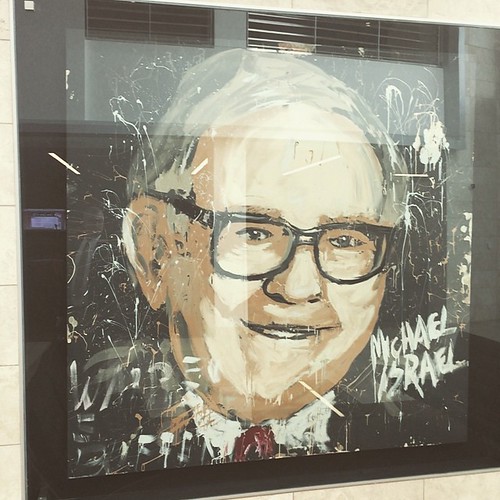
12. **Crafting a Lasting Legacy: Strategic Vision Beyond Personal Wealth**Warren Buffett’s legacy is defined not just by his extraordinary financial achievements but by a profound strategic vision that extends far beyond personal wealth accumulation. A cornerstone of this vision is his unprecedented commitment to philanthropy, a habit of giving that sets a new standard for billionaires. He has famously “pledged to give away 99 percent of his fortune to philanthropic causes,” primarily channeling these vast resources through the Bill & Melinda Gates Foundation. This monumental decision transforms his wealth into a powerful instrument for global good, demonstrating a deep conviction in societal responsibility.
This philanthropic philosophy is also intertwined with his insightful views on inheritance, a critical aspect of wealth management for the ultra-rich. Buffett has articulated, “I want to give my kids just enough so that they would feel that they could do anything, but not so much that they would feel like doing nothing.” This principle guides his decision that his children will not inherit a significant proportion of his wealth, ensuring they are empowered to pursue their own paths without the potential disincentive of excessive inherited fortune. It reflects a long-term perspective on family welfare and societal contribution.
Further solidifying his long-term strategic vision is his meticulous approach to succession planning at Berkshire Hathaway. At the company’s investor conference on May 3, 2025, Buffett requested that the board appoint Greg Abel to succeed him as CEO by the year’s end, while he would remain chairman. This proactive and transparent habit ensures a smooth transition of leadership, safeguarding the company’s future and investor confidence, a testament to his commitment to the enduring health of the institution he built.
Buffett’s strategic vision also encompasses broader economic and societal concerns. He has consistently warned about the pernicious effects of inflation, stating, “The arithmetic makes it plain that inflation is a far more devastating tax than anything that has been enacted by our legislatures.” He has also advocated for greater wealth equality, expressing that “The obligation of a society as prosperous as ours is to figure out how nobody gets left too far behind.” These insights underscore a comprehensive worldview that seeks to contribute positively to both the economic and social fabric.
Ultimately, Buffett’s habits of grand-scale philanthropy, thoughtful inheritance planning, deliberate succession, and keen societal observation coalesce into a legacy built on sustained impact and future-oriented thinking. He has effectively transformed personal fortune into a mechanism for enduring good, ensuring that his influence will reverberate for generations. His actions serve as a powerful blueprint for how immense success can be leveraged not just for personal gain, but for the collective betterment, showcasing a profound understanding of what it means to build something truly lasting.
Read more about: Beyond the Billion-Dollar Sale: Unpacking George Lucas’s Strategic Reasons for Entrusting Star Wars to Disney
Warren Buffett’s life offers a compelling narrative that demystifies the path to extraordinary achievement. From his unwavering frugality and insatiable hunger for knowledge to his pragmatic approach to technology and monumental philanthropic commitments, each habit intertwines to form the fabric of a truly remarkable individual. His journey reminds us that while the investment world may seem complex, the foundational principles for success, both personal and financial, are often simple, consistent, and deeply rooted in common sense. These are the habits that not only propelled him to the pinnacle of wealth but also cemented his place as one of history’s most admired and influential figures, proving that sustained discipline and a clear vision can indeed lead to unparalleled success.

